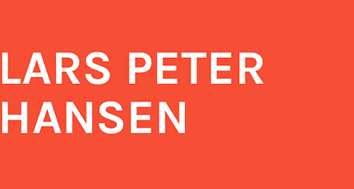Following the tradition of interdisciplinary collaboration will yield exciting research
In the 1940s and ’50s, the Cowles Commission, then at the University of Chicago, brought together economic scholars together with eminent statisticians and applied mathematicians who pioneered exciting new lines of research in mathematically-oriented economic theory and econometrics. Their intellectual probes, nurtured by cross-disciplinary interactions, had a profound impact on economic research over the next decades.
Today, as our computational power continues to expand, it opens the door to new and exciting approaches to research. Following in the tradition of the Cowles Commission, in the next few months the Becker Friedman Institute will be exploring how computation can nurture new approaches to economic research by bringing together computational experts and economists to engage in productive exchanges of ideas along two different fronts.
One area we are exploring is how computing power enhances development of economic theory. For example, economists often use rationality hypotheses when building models. It is understood this approach is at best an approximation of individual’s behavior and decision-making. This has led many researchers to explore alternative notions of bounded rationality in complex economic environments in which the approximation of full rationality is harder to defend. Among other things, models with bounded rationality impose limitations on the computational effort required for the full optimization.
Meanwhile, advances in information technology has led to the emergence of new markets with new forms of exchange. Computational advances offer approaches that can approximate behavioral interactions in these new types of market interactions. Our 2015–16 Research Fellows, Ben Brooks and Mohammad Akbarpour, have organized a conference in August on the Frontiers of Economic Theory and Computer Science that will bring together economists and computer scientists to explore promising new research directions in this exciting area of endeavor.
On a related front, data science has brought together computational and statistical expertise to study so-called “machine learning” approaches to the analysis of large scale data accumulating from everyday transactions in every area of our lives. The institute is probing the question of how to use such approaches in conjunction with economic models that allow us to study important policy questions. Comparing alternative policy options often requires that we engage in the analysis of counterfactuals. This requires that we extrapolate what we have learned from rich data to realms where data is more sparse, using what we call structural economic models. In this vein, the analysis of new and rich data will lead to new economic models designed to address important policy questions. A conference I am organizing with my colleagues Stéphane Bonhomme, John Lafferty, and Thibaut Lamadon will bring together econometricians and statisticians to probe new opportunities for advancement in this exciting synergistic area of research.
While two conferences alone cannot hope to meet the impact of almost two decades of influential work that emerged from the Cowles Commission, they will help to encourage some exciting directions for synergistic research and innovation at the intersection of computation, statistics and economic analysis.
—Lars Peter Hansen
